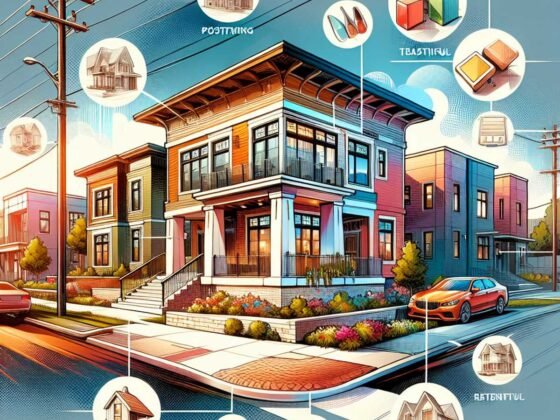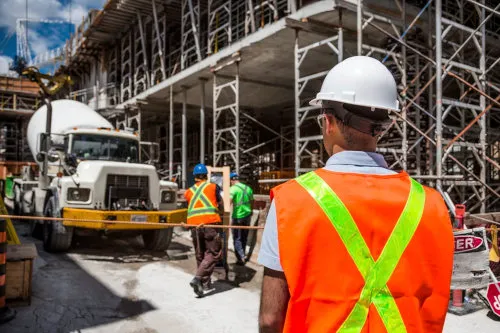Table of Contents Show
Virtual reality (VR) is a technology that has been extensively used in both practical and commercial applications. Although it has been around for a few years now, the year 2015 saw it emerged as a trending marketing tool for many industries, including real estate.

Real estate realtors and agencies use VR to attract potential buyers and reduce expenses on property visits.
A survey by Coldwell Banker Real Estate found that;
- 62% of buyers proceed with the agent who uses VR technology,
- 77% of buyers preferVR tour over the physical visit,
- 68% of buyers prefer VR to see how the furniture looks.
For the real estate industry, virtual reality is no less than a boon. It not only helps real estate agents and broker win customers’ trust, but it also helps customers get what they see through VR.
How You Can Use Virtual Reality in the Real Estate Business
Read Also:
- Buyers Beware: 8 Reasons Why You Should Not Forget About Property Reports
- Commercial vs. Residential Real Estate Investing: What’s the Best Path?
- The Role of Right Property Valuers in Your First Dream Home
- Homeowners Versus Real Estate Investors: Who Benefits More?
- The Role of Double Net Lease in Real Estate Business
1. 3D Virtual Tours
Clients visiting the properties before they decide on the one they want to buy is not only time consuming but also expensive. Moreover, it can get complicated if the client stays far away from the property.
Virtual reality allows millions of people to virtually see properties from the comfort of their homes by simply putting a VR headset to experience immersive, 3D walkthroughs of the properties.
There are two types of 3D virtual tours: Guided visits and interactive visits.
In guided visits, the 360-degree video is captured for the potential buyer to see the property. In interactive visits, the buyer can choose what to see and where to move within the propertyby clicking on hotspots in the field of view.
2. Virtual Staging
An empty space with little or no furniture doesn’t look cozy and appealing. And the statistics have proved it. According to a Profile of Home Staging report by the National Association of Realtors, 77% of real estate agents have said that staging helps potential buyers see property as their future home.
Though home staging is an excellent marketing tool, it needs massive investment. An inexpensive way of staging a property is through virtual reality. It allows real estate agents to virtually stage the properties with furniture and other décor items so that their clients can check them out.
To learn more about virtual home staging, agents can explore various online resources and platforms dedicated to this innovative approach in the real estate industry.
3. Architectural Visualization
Real estate agents may face a challenge when they have to market a property that has not been constructed yet. Virtual reality can help by creating three-dimensional models of the new property or neighborhood. These models can help potential buyers visualize the property and imagine the architecture.
4. Virtual Instructions for Tenants
When renting a property, the tenants usually have a lot of questions about the property, for which they may constantly be in touch with the landlord/real estate agent. This constant interaction can be time-consuming for both the tenant and the real estate agent/landlord.
Virtual reality can serve as a tool for effective communication. By using a VR headset, the tenants can go through 3D virtual tours that provide answers to all the queries they might have, thus avoiding unnecessary contact with real estate agents or landlords.
5. Virtual Commerce
The future of VR is hard to imagine without commerce. While going through 3D tours and virtual staging, clients can make changes to what they see. They can go to an online store, choose the furniture they wish, and then place it in their three-dimensional tour. They can also go to the virtual store and order them. They can make the place look how they want it to look like.
The world is changing, and it’s embracing digital technologies at a rapid pace. Realtors should make sure that they are not lagging behind. Adopting VR for thereal estate business is the way forward. VR is an excellent marketing tool that makes potential buyers have a feel of the property before they make the buying decision.
Author Bio:
Rahul Agarwal is the Co-founder & Chief Business Officer at Styldod, where he has taught a computer to do interior design! Styldod provides the most hassle-free & inexpensive virtual staging solutions for real estate agents so they can sell their listings faster, and for higher prices. Rahul was also a co-founder of Mebelkart (which is acquired by Ask Me). He’s your everyday IIT Kanpur nerd who pushes the boundaries with his innovative entrepreneurial stints and is also a sound startup investor & advisor. Rahul attributes his success as a professional to the discipline he has learned from his district hockey days, being a swimmer and a gym enthusiast.










